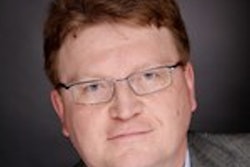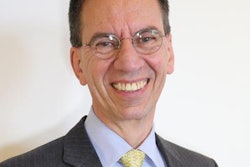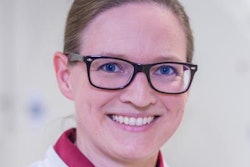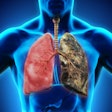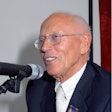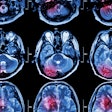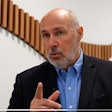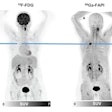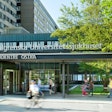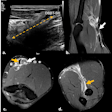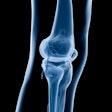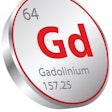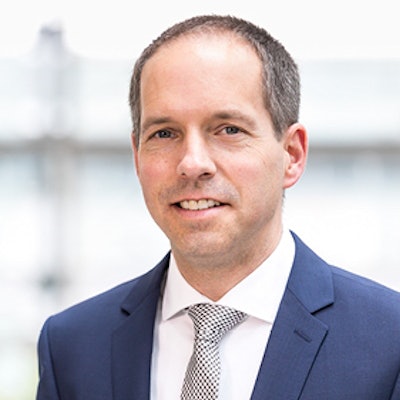
If radiology is to thrive in the years ahead, it must present its case much more strongly and effectively than ever before when dealing with the healthcare system's self-governing bodies, Prof. Dr. Gerald Antoch has asserted.
Antoch is vice president of the German Röntgen Society (Deutsche Röntgengesellschaft, DRG) and director of the Institute for Diagnostic and Interventional Radiology at the University Hospital Düsseldorf. In this Q&A interview, he explains his new role as spokesperson for health strategy, a newly created position that he has held since June 2022.
Q: Does the DRG see itself as a health policy player?
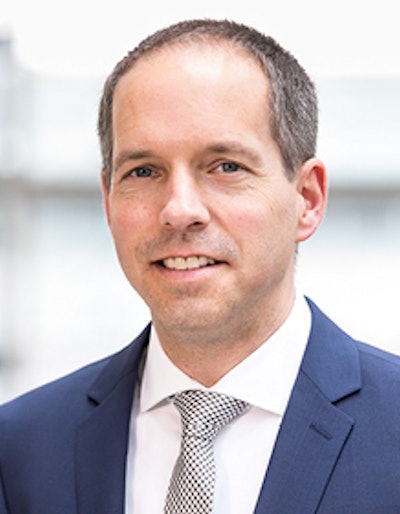 Prof. Dr. Gerald Antoch. Courtesy of DRG and Thomas Rafalzyk.
Prof. Dr. Gerald Antoch. Courtesy of DRG and Thomas Rafalzyk.A: All important decisions affecting the health sector and thus our field are made in the self-governing bodies at the regional and federal government levels. If we want to achieve something for our field today, we have to get involved as well.
The activities of our scientific society, and of the professional radiology association and other radiological associations, are intertwined and complement each other. A scientific society is viewed differently by players in the healthcare system than a professional association, the latter primarily associated with professional policy, for example billing or legal issues. As a scientific society, you can move things along that a professional association cannot.
Q: What are your tasks as the health strategy spokesperson?
A: The first task is to represent the DRG externally on health policy issues. This can be, for example, vis-à-vis politicians and other professional societies or associations and their inquiries and concerns, but also vis-à-vis the media. This also includes networking with external players, particularly when there are common interests at stake.
The second task is to act as a link between the various radiological associations. It is very important to get everyone around the table, to initiate cooperation and to present a united front to the outside world. Only if we succeed in acting -- and being perceived -- as one discipline will radiology also be successful in terms of health policy.
Q: How is the DRG currently positioned in the health policy arena?
A: In order to be a successful contributor to health policy, a discipline must be able to participate via its representatives in self-governing bodies. We have done too little in this area over the past 30 years. That is why we are currently not represented, or only to a limited extent, in numerous self-governing institutions. Thanks to the commitment of individual German radiologists, it has nevertheless been possible to help shape relevant developments. The new model for further training regulations and their implementation at regional level is a good example.
Q: How will you change this situation?
A: A central goal for the next few years will be to increase the number of committed radiologists in the self-governing bodies. However, this will only be possible if we succeed in attracting young radiologists in particular, who will then be able to work for a significant period of time in the said bodies. That is why it is so important that we have the Young Radiology Forum in the DRG as well as the Working Group on Health Policy Responsibility, which aims to motivate young people to become involved in health policy.
Ideally, young radiologists should get involved in doctors' associations and unions such as the Marburger Bund, the Hartmannbund, and the German association of female doctors, the Deutscher ärztinnenbund; be nominated and elected to self-governing bodies; get into positions of responsibility; and help shape decisions in the interests of radiology. So far, we have failed to do this and there is a long way to go.
Q: Does the DRG need partners for it to be more involved in health policy?
A: Yes, absolutely. In order to successfully represent the interests of our specialty, we need the entire radiology community on board. This includes the Professional Association of German Radiologists (BDR), the RG20 radiologists' group, the German Society for Interventional Radiology (DeGiR), the German Society for Neuroradiology (DGNR), the Professional Association of Neuroradiologists (BDNR), and the Society for Pediatric Radiology (GPR).
Together, we have decided to make radiology more visible, and to better represent our specialty. Everything we are currently doing is therefore closely coordinated: When it comes to topics that are relevant to us in terms of health policy, we discuss who will take on and implement which task, such as the current legislation on MRI services. We all want to make a big difference to radiology, and that only works if we speak with one voice. If we start to break up into our individual parts, no one in the healthcare system will listen to us.
Q: In your opinion, what are currently the most important areas for action?
A: Overriding issues in the healthcare system are, for example, the shortage of specialists, continuing education, hospital requirements planning, and the amendment of the medical fee schedule for physicians (GOä). These overriding issues are of course also relevant for us radiologists and therefore we must also get involved here. But there are also radiology-specific topics, for example, the provision of radiological services by other disciplines or the positioning of radiology as a therapeutic discipline. Radiology is not only diagnostics but also as interventional radiologists we are also therapists. This is also why radiology is mentioned for the first time in the new training regulations as a direct patient care discipline.
Q: If you were to describe the future of radiology in three words, what would they be?
A: I don't have to think for long: Innovative, networked, and strong in terms of health policy.
We are innovative because we are technology-savvy and progressive, and we always have been. Active support of this constant innovation will remain the main task of DRG. Second, we are working together with all radiological associations to network as this networking is the basis for any success in the health policy arena. In this way, we will become increasingly strong in terms of health policy.
Editor's note: This is an edited version of a translation of an article published in German online by the DRG. Translation by Frances Rylands-Monk. To read the original version, go to the DRG website.




